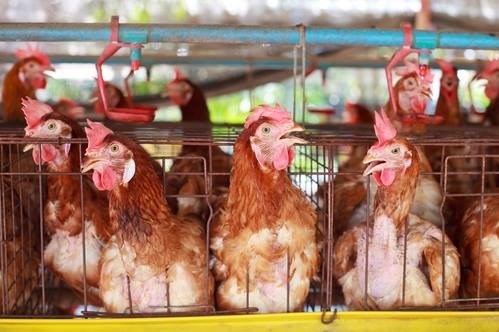
Buckerfield's CEO Kelvin McCulloch says the recent response to a salmonella outbreak connected to live poultry sales is a sign the system is working.
Image Credit: Shutterstock
June 03, 2015 - 1:01 PM
KELOWNA - The recent spike of salmonella cases connected to live poultry sales is a good news story, proof the system works rather than an indictment of its failings, according to a local business.
“Fourteen cases is a very small number and it was detected and caught and the public was actually protected from what could have been a much more widespread occurrence,” Kelvin McCulloch says.
Public health officials in Alberta, B.C. and Saskatchewan disclosed last week they were investigating 37 cases of salmonellosis, (including nine within Interior Health.) Wednesday morning, June 3, the Public Health Agency of Canada added seven new cases to the list, totalling 14 in B.C., 22 in Alberta, four in Saskatchewan and one in Manitoba.
McCulloch is CEO of Buckerfield's, a small agricultural supply store with eight locations in B.C., that distributes live poultry amongst many other things.
He’s careful not to dismiss the seriousness of salmonella for the individuals that picked up the virus but says this pales in significance when compared to something like mad cow disease or sudden acquired respiratory syndrome.
“This is a serious public health issue and for those unfortunate people who came down with this, I’m very sorry,” he says. “But the vast majority of people will recover within four to seven days without any antibiotics."
If he’s critical of anything, it’s the lack of clarity and context in the response by public health authorities that has left some backyard birders scratching their heads.
“People are confused by the information put out by the Alberta Ministry of Agriculture. They do not say go out and destroy your flock and they haven't said clearly in their circular that this is not a widespread epidemic,” he adds.
McCulloch points out that Rochester Hatchery, one of the sources of the outbreak in Alberta, detected and reported the outbreak themselves during routine testing, before public health in Alberta, Saskatchewan and B.C. got involved.
“Rochester destroyed the entire flock on the spot, 89,000 eggs, even thought that’s far more than the number of infected eggs,” he says. “So this thing is stopped right there.”
McCulloch says the B.C. Centre for Disease Control and the Interior Health Authority need to follow up the initial reports about the outbreak with contextual information.
“It’s rather vague. They need to inform people they are not going to get salmonella by handling chicks, if done right. Nobody knows that the few cases that have occured are part of 800 cases they see every year,” he says. “Salmonella is everywhere. It’s part of animal living. It’s not an unnatural part of the environment. Marginal leakage will always occur from time to time in our food chain. Everyone whould be aware of that. With proper handling precautions, salmonella is not a factor."
To contact the reporter for this story, email John McDonald at jmcdonald@infonews.ca or call 250-808-0143. To contact the editor, email mjones@infonews.ca or call 250-718-2724.
Corrected - 11:02 a.m. Monday, June 8, 2004. Part of a quote inadvertently deleted was added back in.
News from © iNFOnews, 2015